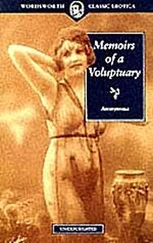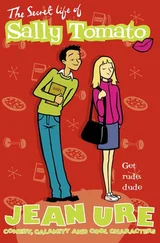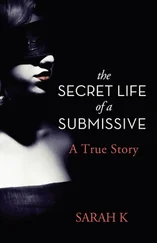“I think Marilyn, on some level, felt that Natasha had been largely responsible for her earlier, sillier performances,” Marilyn’s friend Rupert Allan once said. “Natasha wanted Marilyn to be some cutesy doll, and she was kind of sickened by it.”
But in Natasha’s defense, history views these performances as near perfection, and it was Natasha’s direction that made them so specifically innocent and childlike. It was as though she took Marilyn’s vulnerable, sensitive essence and magnified it to near caricature. It’s a great testament to Marilyn’s onscreen presence that we, the audience, found her so engaging. For example, her appearances before she met Natasha, such as in Ladies of the Chorus , for example, might be considered provocative, but not the least bit “childish or naïve.” Even while singing “Every Baby Needs a Da Da Daddy” there’s a come-hither maturity to her performance. Compare that to the first film on which Natasha coached her, Asphalt Jungle. In that one, Marilyn’s character seems wide-eyed and vapid. Though not yet the fine-tuned, baby-talk performances that followed, as in Gentlemen Prefer Blondes and Seven Year Itch , her acting in Asphalt Jungle shows that Natasha was beginning to mold Marilyn more and more into a childish performer. Even after Marilyn’s association with Natasha ended, directors wanted “that Marilyn,” and she would grudgingly deliver—but none of those performances would be as precisely honed as the ones that Natasha had helped create.
Now, with a year away from her career and a few concurring opinions about Natasha’s influence on her, Marilyn believed that her New York colleagues were right—that, in a sense, Lytess had probably been carving Marilyn into Lytess’s own fantasy. Now Marilyn was left to reverse the image and change the way Hollywood viewed her, if she could. She certainly wanted to try.
Natasha continued to pursue contact with Marilyn. Finally, when she simply would not back off, Marilyn had her attorney, Irving Stein, telephone her. Stein told Lytess in no uncertain terms that she should not call or visit Marilyn Monroe under any circumstances. In response, according to the attorney’s notes, Natasha delivered this soliloquy to him on the telephone:
“My only protection in the world is Marilyn Monroe. I created this girl. I fought for her. I was always the heavy on the set. I was frantic when I called the house and she would not speak to me. I am her private property, she knows that. Her faith and security are mine. I’m not financially protected, but she is. I’m not a well person. I would like very much to see her even with you, if only for one half-hour.”
The answer was no.
“She’s surrounded by these people who don’t let her do anything by herself,” Natasha said—and one could argue that she would know. “They’re afraid to lose her. She never goes anywhere alone; they’re stuck to her like glue.”
In a very interesting letter to her former student Helena Albert, Natasha put it this way: “I, for years, have seen Marilyn’s ability to cut people out of her life. I have even encouraged it. Imagine my dismay in finding that I am now one of those people. I suppose it was inevitable, yet it pains me so much I can’t bear it another moment.”
In one last-ditch effort, Natasha revealed that she was dying of cancer. When Marilyn’s lawyer told her the news, Marilyn appeared to be unmoved by it. However, later, she discreetly sent Natasha a check for a thousand dollars, at least according to a correspondence from Lytess to Albert. “It is very generous of her, yet it does not take the place of a simple and courteous telephone call,” she wrote. Indeed, when she received that money, Natasha must have known it was Marilyn’s farewell gift—but she may also have seen it as suggesting that Marilyn still cared. On March 5, despite the attorney’s warning that there would be “trouble” if she continued her pursuit of Marilyn, Natasha showed up unannounced at the Beverly Glen home. MCA agency president Lew Wasserman, who represented Marilyn, happened to be there, meeting with Milton Greene. He refused to allow Natasha entry into the house, telling her that Marilyn didn’t want to see her and had no plans to intervene on her behalf with the studio.
“You don’t understand, Marilyn needs me,” Natasha told him.
“Marilyn Monroe needs no one,” Wasserman snapped, slamming the door in her face.
Dejected, Natasha walked back to her car. When she turned to open her vehicle’s door, she noticed a quick flash in an upstairs window of the house. There, next to a curtain, was Marilyn, staring down at her with a vacant expression. The two women looked at each other for a long moment. Then Marilyn closed the drapes. *
PART SIX
Voices
The Misery of Arthur Miller
O ne of the major components in the Arthur Miller–Marilyn Monroe relationship was that Miller loved how well Marilyn Monroe listened to him, the way she hung on his every word. One mutual friend of the couple’s put it best: “She was all about listening and receiving and he was all about talking and sending. He lectured her constantly. She was mesmerized by him. She drank him in like a sponge and let him affect her through osmosis.”
Arthur Miller could do no wrong, as far as Marilyn was concerned. He was smart and interesting. He was invested in social change and had a real conscience. He was also supportive of her ambition—unlike her last husband. However, despite all of his good qualities, she was reluctant to marry him. In fact, she didn’t want to encourage him to divorce his wife—even though his mind was made up about that. She didn’t want him to break up his family for her, because she wasn’t sure she was right for him. He could continue to dazzle her with his intelligence, but on some level she must have known that he would eventually need some input from her. How did she feel about literature, about culture… about the world? She was a smart woman, smarter than even she knew. However, she was so insecure in herself, she never thought of herself as intelligent. She always felt that she was less than… whoever she was with at any given time. She confided in friends that she didn’t think she had the tools to really meet Miller at his intellectual capacity, “and what will he do when I’m found out,” she fretted. “I’m a good actress, but I don’t know that I’m that good.” Her great fear was that he would wake up one day and believe that he was with someone who didn’t know a lot about anything that mattered to him.
During production of Bus Stop , she leaned on him during times of great stress. That he was there for her meant the world to her. Desperate late-night telephone calls had become a recurring theme to their relationship. She could never seem to sleep, no matter how many pills she took, so inured had she become to their effects. Sometimes she would wash them down with champagne, and then not only was she wide awake, she was also inebriated. There was no telling what she might say in such telephone calls. “I can’t do it. I can’t work this way,” she cried to him in one call during production of Bus Stop . “I’m no trained actor. I can’t pretend I’m doing something if I’m not. All I know is real. I can’t do it if it’s not real.” She was talking about her role in the movie, but it also seemed as if she were referring to her role in his life.
On weekends, the two would meet at the Château Marmont Hotel in Hollywood for a romantic rendezvous. For days afterward, she was miserable. “I don’t know what is happening to her at this time,” Berniece wrote to another relative. “She thinks too much about every little thing. She doesn’t seem to want to just jump in and live, like Norma Jeane used to. Instead of making her more courageous, all of that therapy has made her more timid. I am definitely worried about her.”
Читать дальше












